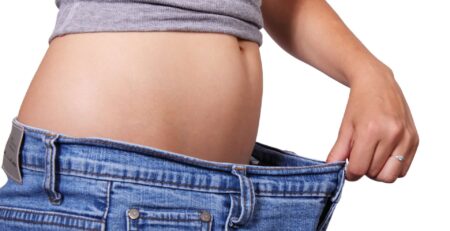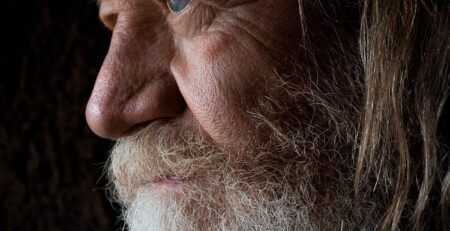Cold plunging makes you happy and much more… Why is that? Many hormonal processes take place in your body when you plunge into ice-cold water. Your body reacts to this extreme situation with a whole mix of hormones that are released. We have forgotten a lot of this in our affluent society, because how often do we find ourselves in such situations? But the controlled release of hormones is one of the best things you can do for yourself and your health.
Table of Contents

What are Hormones Anyway?
Hormones are chemical messengers that are produced by certain cells and glands in the body and then transported to other cells. There, they bind to specific receptors that receive these messenger substances. In this way, they influence the function of the cells that receive them. Hormones are therefore important for the communication between cells and play a decisive role in many elementary processes such as metabolism, organ function, reaction to stress and anxiety, and much more.
What are the Most Important Hormones in the Human Body?
Here you will find an overview of the most important hormones that have a major impact on the human body. Not all, but many of them are also released during cold plunging.
- Insulin: regulates blood sugar levels by promoting the transport of glucose from the blood into the cells.
- Oestrogen and testosterone: sex hormones responsible for the development and maintenance of sexual characteristics and reproductive function.
- Adrenaline and noradrenaline: hormones that are produced by the body in the event of stress or danger and are responsible for the “fight or flight” response.
- Thyroxine: This thyroid hormone regulates the metabolism and influences the growth and development of your body.
- Cortisol: also known as the “stress hormone”, cortisol influences various processes in the body, including metabolism and immune function.
- Melatonin: regulates the body’s sleep-wake rhythm.
- Growth hormones: promote growth and development of the body during childhood.
- Serotonin: regulates mood, appetite, and sleep.
What Happens When the Hormone Balance is Disturbed?
The body no longer functions properly, especially in the areas directly affected by hormones. A hormonal imbalance can lead to various serious illnesses. Among others, the following diseases can result, but there are many more:
- Diabetes
- Thyroid diseases
- Hormone disorders
- Cancer
- Obesity
- Depression
- Infertility
- Acne and other skin diseases
- Tiredness
The Fight or Flight Reflex
This reflex is hardly present in our affluent society, but can be activated by cold plunging.
A cold plunge exposes the body to extreme cold, which is perceived as extreme stress for the body. This triggers a reaction known as“fight or flight”. The name comes from the idea that the body must be prepared to either fight or flee in order to survive. In response, your body releases a cocktail of hormones to prepare and protect you in the best possible way for this life-threatening environment. You need to be aware that cold plunging is, of course, fatal if you stay in it for too long. And that’s exactly what your body wants to prevent with all the means at its disposal.
The fight-or-flight response is therefore evolutionary and very useful for us, because your body senses the situation in which your survival is threatened. Cold plunging can start and stop such a reaction in a controlled manner, forcing the release of hormones that you would probably not have in your well-protected, affluent everyday life. In the past, when people were more exposed to the forces of nature and threats from other tribes, animals, or diseases, and there was also less protection, the fight-or-flight response was used more often and thus ensured regular hormone surges. Ultimately, this only ensured that you would survive the coming morning. In our modern society, these strong situational threats have evolved into a weaker but permanent threat in the form of everyday stress, which is no longer properly channeled and discharged.
Which Hormones are Released During Cold Plunging?
Some of the most important hormones that are released during a cold plunge to protect you and prepare you for this exceptional situation are testosterone, adrenaline and noradrenaline, endorphins, cortisol, thyroxine, and leptin. Below is an overview of what these hormones do and why the cold activates them.
Testosterone
The male sex hormone testosterone is released to a greater extent during cold plunging. Some studies have shown that cold increases testosterone production. For example, men who have completed a session in a cold chamber have higher testosterone levels than a comparable group of men who were in a normal temperature environment. It is believed that the cold reduces the activity of enzymes that break down testosterone, thereby increasing testosterone levels.
Adrenaline and Noradrenaline
Adrenaline and noradrenaline are produced by the adrenal glands and belong to the so-called stress hormones. They are released in stressful situations to prepare the body for strenuous physical activity. During cold plunging bathing, adrenaline and noradrenaline increase the heart rate and blood pressure in order to pump more oxygen and nutrients to the muscles. They also constrict blood vessels in the extremities to keep blood flowing to vital organs in the center of the body. This helps to maintain body heat in the torso, effectively protecting the body from the cold for as long as possible. It hurts to lose a finger or a toe, but it’s always better than your heart stopping.
Adrenaline and noradrenaline can also be used as neurotransmitters in the brain and stimulate the central nervous system. This increases your alertness and attention. This is helpful to be mentally prepared for the challenge of ice bathing and to enable a quick response; however, this alertness, focus, and concentration will remain throughout the day after the plunge.
Adrenaline and noradrenaline also cause the pupils to dilate in order to improve vision.
Cortisol
Cortisol is a hormone that is produced in the adrenal cortex and plays an important role in the body’s metabolism and stress response. Cortisol has various body effects, including the regulation of blood sugar levels and the metabolism of fats, proteins, and carbohydrates. During cold plunging, cortisol increases blood sugar levels to provide the body with more energy. Because, of course, it needs this to keep you warm.
Cortisol also has an anti-inflammatory effect and can protect the body from inflammation caused by the cold. This also explains the robust health of many cold plungers, who very rarely fall ill, and if they do, only for a shorter time and more easily than their peers.
Endorphins
Endorphins are endogenous opioids produced by the hypothalamus that act as natural painkillers and mood enhancers. In response to the cold and the associated pain, endorphins are released to calm the body and relieve the pain.
Cold water swimming can cause a range of physical discomforts, such as headaches, nausea, muscle cramps, and breathing difficulties. Endorphins help to alleviate these symptoms by reducing pain and discomfort and creating a feeling of relaxation and well-being. In addition, endorphins also have a positive effect on mood and can increase feelings of happiness and contentment. This helps to mentally prepare the body for the cold and reduce your stress levels.
Endorphins normally only have a short-term effect that lasts for a few minutes. Once released, they are broken down and excreted relatively quickly in the body. However, the release of endorphins through certain activities or events, such as intense physical exertion, stress, or positive experiences, such as cold plunges, can also have longer-lasting effects. Anyone who has tried a cold plunge will be able to confirm this euphoric feeling even hours after exposure to the cold.
Thyroxine
Thyroxine (also known as T4) is produced by the thyroid gland and is a hormone that plays an important role in regulating the body’s metabolism.
Increased physical exertion, as occurs during winter swimming, speeds up the metabolism and increases energy requirements. This causes the thyroid gland to produce more thyroxine to cover the increased energy requirements. And ultimately, this also helps with weight loss, because when your body’s basal metabolic rate is increased, exposure to cold causes you to produce more energy and therefore burn more fat.
Leptin
Leptin is a hormone that is normally produced in the body’s fat cells and plays a role in regulating appetite and metabolism. As the body’s energy requirements are greatly increased, the appetite is suppressed and the metabolism is boosted, causing the pounds to tumble off. And this continues even after exposure to the cold, because the formation of brown fat means you consume more energy in the long term and can access it more quickly.
Melatonin
Melatonin is a hormone that is naturally produced in the body and plays an important role in regulating the sleep-wake cycle. It is normally produced in larger quantities in the dark and signals to the body that it is time to rest and fall asleep. You should therefore also avoid so-called blue light so as not to prevent or interrupt melatonin production in the evening.
Some studies investigated the effects of cold exposure on melatonin production in rats and found that exposure to cold leads to increased production of melatonin. Another study from 2017 on humans found that immersion in cold water before bedtime led to an increased concentration of melatonin in the blood, which suggests that cold plunging can also be practiced well in the evening. Cold plunging can therefore help you fall asleep better as it increases melatonin production.
Dopamine
Dopamine is a neurotransmitter that plays an important role in the brain in the regulation of mood, reward, motivation, and movement. There are hypotheses suggesting that cold plunging may also have an effect on the dopamine system in the brain. Since this type of cold is an extreme stressor for the body, one response of the body may be to release dopamine to reward itself for successfully surviving the cold exposure. A study on mice showed that cold environments led to increased dopamine activity in the brain. This means that the reward center in the brain is activated.












Leave a Reply